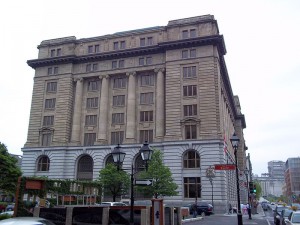Border Bee receives many calls from distressed Canadians looking for an explanation as to why their personal property is being held by Customs. Here are some answers to the most common questions.
Why are my personal effects being held by Customs?
The unfortunate reality is that many people lie to Customs. All too frequently, goods that were purchased are labelled as ‘gifts’ or ‘personal effects’ to avoid duties and taxes. This is a sore point with Customs. The real cost of this dishonesty may not be the government’s lost revenue but the burden placed on honest Canadians who must prove that their property is not subject to tax or restriction. There is also the possibility that within your personal effects are items restricted in Canada that Customs has a responsibility to prevent from entering the country.
Do I have to go to Customs to clear my effects?
Yes. Alternatively, you may provide a relative with ‘written authority’ to represent you to Customs in order to obtain clearance for your articles. This relative will show the authority when they arrive at the Customs office. It may also be wise to provide them with a copy of your passport or driver’s license.*
What qualifies as ‘personal effects’?
Did you buy the goods? Do you have a receipt? If the answer to these questions is ‘no,’ then you are likely importing personal effects. Personal effects require you to self-clear and report directly to the CBSA, where you will complete this form and answer any additional questions Customs might have about what the personal effects contain.
Personal effects typically take the form of:
- items bequeathed by a foreign relative
- personal property used during a period abroad for more than a year
- property imported by settlers or seasonal residents
Do I have to self-clear my gift?
If it is in fact a gift–meaning that you did not purchase the item and no one purchased it for you–then yes, you must self-clear the item and report directly to the CBSA. The reason for this precaution is that many gifts may have been sent by the shipper in return for a consideration that Customs would consider taxable. The threshold for importing gifts tax-free is $60.
For information on how to self-clear your gifts or personal effects, see here. The process for self-clearing personal effects and purchases are the same and require you to report to the Customs office where your goods are being held.
*If you live very far from the Customs office and do not have a relative who can represent you at the port, you can try your luck by calling the CBSA’s BIS line: 800-461-9999 (inside Canada).
Good Luck!
